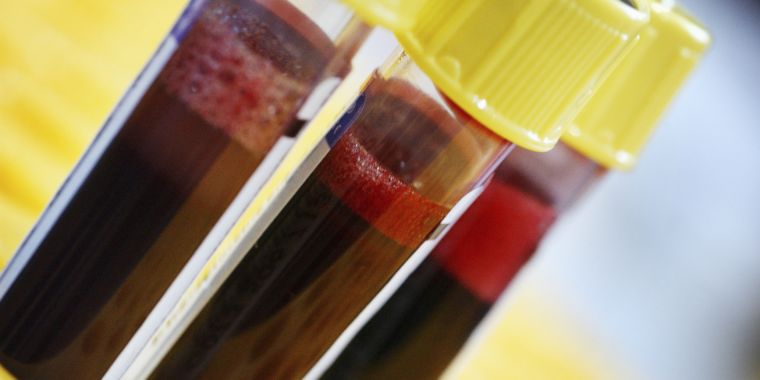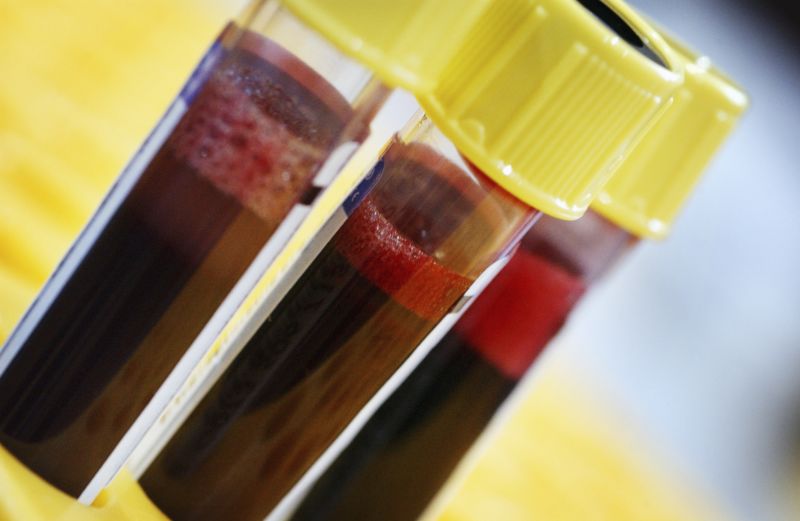
Test of fate —
The test was ~83% accurate in an analysis involving data on 7,600 people.

Enlarge / Samples of donated blood in Vacutainer test tubes.
If death is in the cards, it may also be in your blood.
Measurements of 14 metabolic substances in blood were pretty good at predicting whether people were likely to die in the next five to 10 years. The data was published this week in Nature Communications.
A team of researchers led by data scientists in the Netherlands came up with the fateful 14 based on data from 44,168 people, aged 18 to 109. The data included death records and measurements of 226 different substances in blood. Of the 44,168 people, 5,512 died during follow-up periods of nearly 17 years.
The researchers then put their death panel to the test. They used the 14 blood measurements to try to predict deaths in a cohort of 7,603 Finnish people who were surveyed in 1997. Of those Finns, 1,213 died during follow-up. Together, the 14 blood measurements were about 83% accurate at predicting the deaths that occurred within both five years and 10 years. The accuracy dropped to about 72% when predicting deaths for people over 60 years old, though.
The lineup of apparent markers of doom are perhaps not entirely surprising. Some are already known to signal deadly conditions, such as heart disease, cancers, and diabetes—all leading causes of death in Europe and the United States. The culprits include blood sugar; factors linked to “bad” cholesterol; glycoprotein acetyls and polyunsaturated fatty acids, which are linked to inflammation; and albumin, which can indicate kidney and liver problems. Still, some others, such as acetoacetate, aren’t as clearly linked to mortality and require some follow-up research, the authors say.
Nevertheless, “[i]n combination, these biomarkers clearly improve risk prediction of 5- and 10-year mortality as compared to conventional risk factors across all ages,” the authors conclude. “These results suggest that metabolic biomarker profiling could potentially be used to guide patient care, if further validated in relevant clinical settings.”
Knowing whether someone is likely to kick the bucket in the near future may help determine if a patient is, say, too far gone for an invasive surgery. On the other hand, learning of impending doom may also help motivate patients to work on improving their health through lifestyle changes to stall that fate. In line with that, mortality predictions could perhaps one day help determine if modern medicine has found a way to cheat death with new treatments or interventions.
At the moment, researchers are a long way from that. The markers have to be validated in clinical settings—not just cohort datasets. Moreover, all the data in the study came from people of European decent, meaning it may not be applicable to other groups.
Nature Communications, 2019. DOI: 10.1038/s41467-019-11311-9 (About DOIs).









